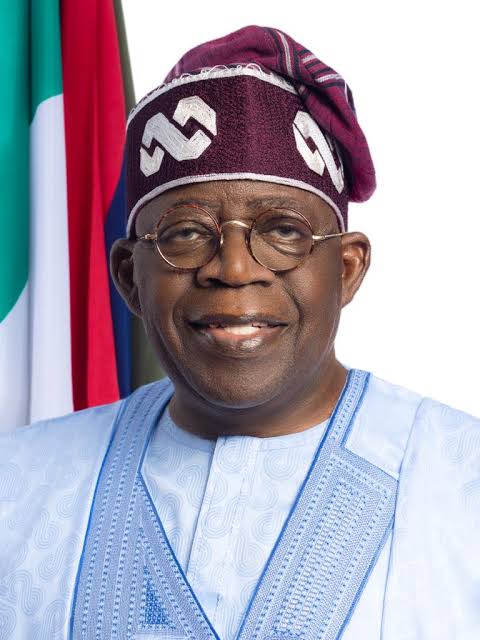By; ARCHIBONG ESUENE, Abuja As the global community marks the 2025 World Sickle Cell Day 2025, the Federal Government has reiterated the country's
By; ARCHIBONG ESUENE, Abuja
As the global community marks the 2025 World Sickle Cell Day 2025, the Federal Government has reiterated the country’s commitment to reducing the burden of Sickle Cell Disease SCD) through enhanced awareness, prevention, early diagnosis and quality care.
The 2025 world Sickle Cell Day under the theme, “Transforming Care and Strengthening Communities ” , the Federal Government pointed how that Cell Disease is a severe , inherited blood disorder affecting nearly 100 million people globally, with the highest burden found in Sub- Saharan Africa.
According to the Minister, It accounts for over 50% of deaths among individuals with the most severe form (Hb SS) and remains the most prevalent genetic condition in the WHO African Region. In Nigeria, it contributes significantly to both childhood and adult mortality.
Currently, 25% of Nigerians adult carry the sickle cell gene, and the country records approximately 150,000 infant death annually due to SCD representing around 8% of total infant mortality . Survivors often suffer chronic complications, including end organ damage , stroke and increased susceptibility to infections.
Despite these challenges, SCD remains preventable and manageable. However, systemic gaps- such as limited public awareness, inadequate screening, and shortage of trained personnel – continue to hinder progress. Addressing SCD is key to achieving Sustainable Development Goals (SDGs) 1 (No Poverty), 3 (Good Health and Well-being) and 4 (Quality Edo state
The Federal Ministry of Health responsef the Federal Ministry of Health and Social Welfare has launched several targeted initatives, including:
1. Training of Primary Health Care (PHC) workers to implement Universal Newborn Screening for SCD , currently ongoing in the Southwest geopolitical Zone.
2. Development of a National Desk Guide and SOPs for standardizing newborn and infant screening procedures across the country.
3. Establishment of Six Centres of Excellence, one in each geopolitical zone, equipped with diagnostic tools e.g HPLC and trained staff to serve as regional hubs for SCD screening and management.
4. Review of National Guidelines fot the prevention and control of SCD, incorporating the latest WHO-AFRO recommendations and advancements in care.
5. Integration of SCD services into primary Health care, alongside other priority Non- Communicable Diseases (NCDs).
6. Development of Nigeria ‘s Package of Essential Non-communicable (NCD) Interventions (Nigeria-PEN), adapted from WHO guidelines, with provisions for genetic counseling; screening, diagnosis and referral.
7. Establishment of a Multi-Sectorial Action Plan (MSAP) Technical Committee to coordinate national efforts across ministries and agencies.
8. Nationwide advocacy campaigns, with ongoing sensitization on genotype testing and genetic counseling.
9. Pilot implementation of PEN- Plus strategies, focusing on SCD , Type 1 Diabetes and Rheumatic Heart Disease in collaboration with WHO and the Clinton Health Access Initiative, CHIA.
Forward- Looking Priorities
Looking ahead, the government is committed to expanding and institutionalizing care for individual living with SCD through:
– Revitalizing and upgrading the six SCD Centres to improve access to comprehensive care.
-Introducing validated point- of -care screening technologies for newborns and older age groups at all levels of health care.
– Scaling up the use of Hydroxyurea, a proven therapy for reducing complications and improving quality of life.
– Integrating SCD services into maternal and child health programs, particularly at primary and secondary care levels.
– Strengthing community engagement and mass mobilization to raise awareness and support early screening.
-Enhancing research, monitoring and evaluation systems for effective program implementation
-Partnering with development partners, civil society and, the private sector to strengthen surveillance and support services for affected individuals and families.
Hosting the 5th Global SCID Congress
In a major recognition of Nigeria’s leadership in tackling SCD, recently the country successfully hosted the 5th Global Sickle Cell Disease Congress in Abuja. The event, organized in collaboration with the Sicke Cell Support Society of Nigeria (SCSSN), the Global SCD Coalition and, the Global Sickle Cell Disease Network; convened researchers, clinicians, policymakers and advocates to strategize on reducing the global burden of SCD under the theme “Leave No One Behind”.
A National Call to Action
Sickle Cell Disease is not only a medical issue- -it is a societal challenge that requires collective responsibility. By prioritizing genotype testing, supporting affected individuals and, advocating for improved services, we can reduce the incidence of new cases and improve outcomes for those living with the disease.
Together, let us transform care, strenghten communities and, build a future where no child is born into suffering from a preventable condition.




COMMENTS